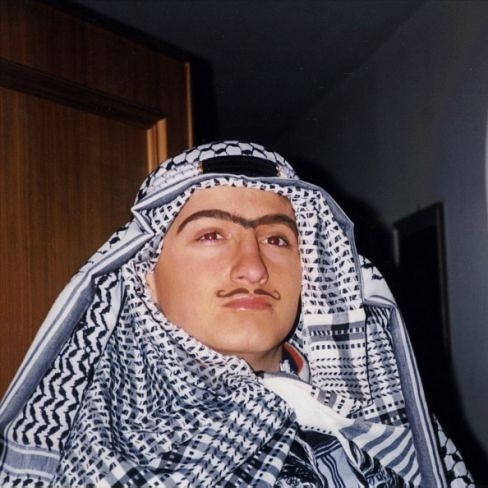Mein fuhrer, Ich bin gefähig!
Got to love the flash.
After stumbling into a love-hate relationship with it, and after having been cured from the infatuation for ultrafast lenses (no, they are not the cure for everything :-) I am finally coming to terms with this beautiful tool.
Muchas gracias to Neil van Niekerk for his amazing website rich in explanations, examples, and inspiration! So inspiring, that I spent an hour just flashing away in the basement of my house trying to discover the interplay of light and shadow, the power of bouncing light (indiscriminately, yes...) and foreseeing the combined effect of flash light and ambient light.
Too bad I now really feel the need to purchase yet some more equipment (talk about softboxes, umbrellas and light tripods!): the perspectives opened by flash seem to be amazing.
I don't know if this has cured, or if it'll ever cure my dependence on higher and higher isos (I so need a D3s... :-) but it'll keep me entertained, and most importantly, happy, for some time, and will allow me to get better pictures.
Can't wait to just go out and shoot! :-)
A couple of examples to show that I indeed learned something: first, following again Neil's suggestion, isolate your flash head. Spilling light to the subject is way too easy, and gives away flash light immediately. Neil uses black foam around the flash's head. I managed with dark cardboard. You lose some power, but you don't spill light, and you just get a more natural look.
Second: often light bounced from just behing your shoulder is better than light bounced from in front of you. It gives the subject a flattering light with a "pop". See the image for reference:
Light bounced more from the front instead has a different character. It is more equally distributed both in front and behind the subject, but is flat (and unflattering...).
It can be very useful in case you have two or more subjects one (or more) behind the other. With light bounced from behind you, the backstanding subject/s would get almost no light, and be too dark. Bouncing more frontally (and yet, bounced on one side...) you get still a nice look, and more even distribution also behind the main subject.
This image shows how does light look when bounced from up-right:
Seems like a difference big enough to me. The first image preserved a certain "tridimensionality": the shaded side is darker, but not too much, and the brighter side, despite the small hot spot (I wonder how to take that away! :-) certainly shows a flattering light.
Sample 2 instead looks even, with a more evident background too... and yet, it is less appealing, as it loses plasticity and turns into slightly bidimensional and flat.
Well, this is just the beginning of my explorations of flash light :-) I wonder if I will ever get this flash-flu as bad as this guy... :-)


1 Comments:
Very informative article, thank you!
Post a Comment
<< Home